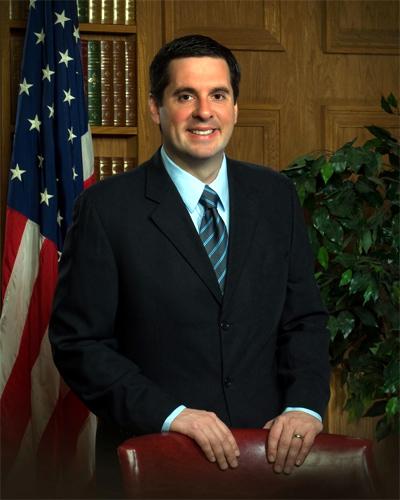
The US-India trade had doubled every five years and was approaching the $100 billion mark, since 2001, but it is still a low number. The first hearing of the trade subcommittee in the new 113th Congress on 'United States-India Trade Relations' had some interesting insights.
"India's market holds potential for world-class US products and services, " said United States Congressman Devin Nunes, California Republican and the new chairman of the House Ways and Means Trade Subcommittee, adding, "I want to ensure that US job creators compete there on a level playing field."
In a clear signal of the importance of trade relations in the envisaged strategic partnership between Washington and New Delhi, the first hearing of the trade subcommittee in the new 113th Congress was on 'United States-India Trade Relations: Opportunities and Challenges.'
"We hope we can avoid threatening, taking every issue to the World Trade Organisation," said Congressman Charles Rangel of New York, the ranking Democrat on the Subcommittee.
"We hope that our businesspeople as well as legislators work to eliminate or take away the problems that we have in this area," Rangel added.
...

The first witness, Dan Twining -- Senior Fellow for Asia at the German Marshall Fund of the United States, who served in the State Department's Policy Council in the Bush administration, handling the South Asia portfolio -- pointed out, "Within a generation, India's likely to become one of America's most vital partners in world affairs. It will bring more capabilities to the table than any existing US ally, in pursuit of our convergent interests - defeating terrorism and extremism, managing China's rise, keeping open the Indian Ocean sea lanes, and sustaining a liberal, international order."
"Recognising this," Twining said, "Washington and New Delhi have developed a far-reaching strategic partnership centered on defence cooperation, but our economic relationship remains strangely underdeveloped."
Since 2001, Twining said US-India trade had doubled every five years and was approaching the $100 billion mark, but felt it was a still a "low number."
"Our trade with India is only one-seventh of our trade with China, despite the fact that one country is a strategic partner and the other is a strategic competitor."
...

Twining expressed regret that the Obama administration's signature trade initiatives -- the Trans-Pacific Partnership and Transatlantic Trade and Investment Partnership -- do not include India.
Even a modest bilateral investment treaty, he said, had been "stuck in the bowels of our bureaucracy for years, while India has enacted or is negotiating trade agreements with Japan, the EU, ASEAN and a number of other partners, but not the United States."
"Although India is part of Asia's security architecture," Twining added, "it's not part of Asia's economic architecture. India applied for APEC (Asia Pacific Economic Cooperation) membership back in 1991, but the US eventually backed a moratorium on membership."
"That moratorium has expired. India's exclusion makes little sense for a country that sits in the middle of Asia, is an important trading partner to America, China and Japan, and has an economy that comprises nearly 20 percent of global GDP by 2060 according to the OECD (Organisation of Economic Cooperation and Development)."
...

Without a strategic framework for economic cooperation, he said, "Indian and American trade negotiators skirmish frequently in bilateral channels and at the WTO. Our trade ties too often degenerate into parochial disputes over things like pistachio nuts and chickens that have occupied even top political leaders."
"This is no way to build a strategic economic relationship between the world's largest democracies." Twining recommended that the US and India launch negotiations for a free trade agreement.
"India will have to undertake far-reaching domestic reforms to qualify. New Delhi might find it easier to undertake these reforms if it can do so as part of a process of acceding to APEC... the requirements of membership could incentivize an Indian system wary of reform."
"Sceptics will argue correctly that Indian officials have been among the most obstreperous opponents of the US trade agenda in venues like the WTO... " Twining said.
...
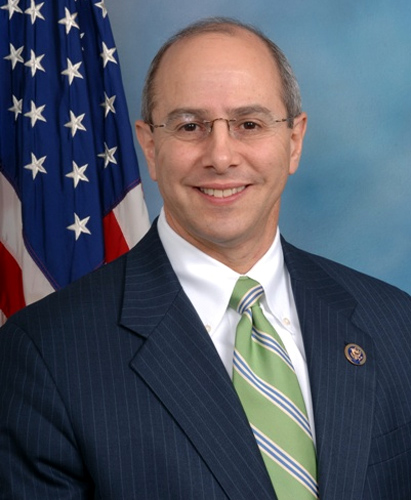
"Stepping back, however, and looking strategically at India's deepening involvement in international institutions, we see that India behaves quite differently once it is inside a club than when it is excluded from it."
Citing India's responsible behavior in institutions like the International Atomic Energy Agency and the United Nations Security Council, he said, "Indians crave the status of full membership in an international order they believe has excluded them for too long. Once seated at the high table, they are more inclined to help enforce global rules. I think the same would be true if India should accede to APEC."
US Congressman Charles Boustany, Louisiana Republican, poimted out the enthusiasm about the civil nuclear agreement and how India's liability regime had dampened that across the board.
...
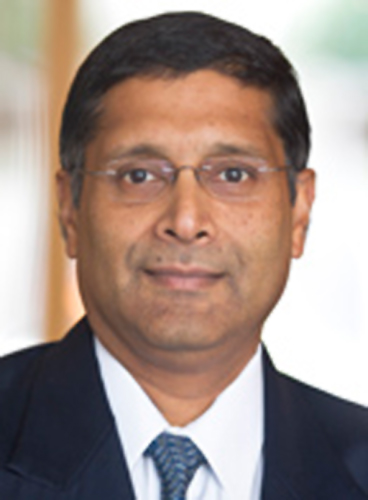
"The liability law that Indian subsequently passed shot itself in the foot... It (the civilian nuclear deal) was the first time an Indian prime minister had put his government on the line on a foreign policy issue, put his government on the line over building this new relationship with us," Twining added.
"He won that, but then it was almost like the fight went out of his administration. They let Parliament devise this liability law that was frankly inadequate."
Arvind Subramanian, Senior Fellow, Peterson Institute for International Economics and the Center for Global Development, made three observations in his testimony.
"Number one, the prize is big. I have breaking news for you -- 2012, India became the world's third-largest economy in purchasing parity terms, surpassing Japan and now behind only the United States and China."
"My forecast is that this $4.7 trillion economy will double every seven to 10 years... and it's worth emphasising that India-US trade and investment are balanced so that you don't have the kinds of tensions with other countries from imbalanced trade."
...
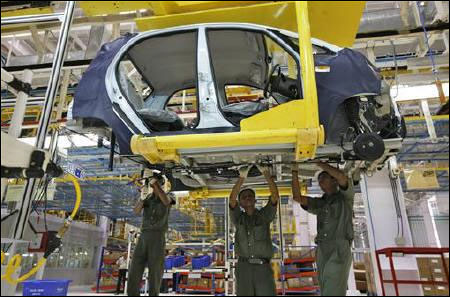
His second observation was that the sectoral and the micro should not obscure the macro developments.
"Despite India's transitional turbulence that's happening now -- slower growth, mounting macro vulnerabilities -- the predominant trend has been towards opening. In the last two, three years, few countries have opened up to FDI (foreign direct investment) and foreign capital across the board -- you know, stock markets, equities, debt instruments, etc -- like India has."
"And that's because it reflects a deep and fundamental bipartisan consensus within India that the way forward is greater openness and globalisation."
However, as his third observation, Subramanian spoke of three major challenges that the US faces in India. "India wants to do the same Chinese indigenisation and localisation that China has been doing..."
"The second challenge is the weak and uncertain regulatory and tax environment that affects US civil nuclear industry, pharmaceuticals, agriculture, infrastructure, etc."
...
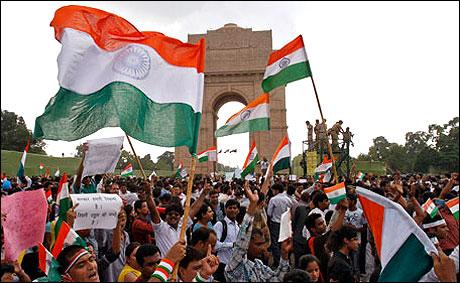
"The third big challenge that nobody is -- American firms are not -- complaining about, but which they should most of all, which is that, because of all these free trade agreements that India has signed or is about to sign, US business is getting disadvantaged..."
"India has very high barriers, and it is a growing market. So, the extent of disadvantage to American business is absolutely huge."
Subramanian suggested that these challenges be addressed by first resorting to dialogue, but "if that doesn't work, use the WTO."
With the WTO, he reasoned, "One, you can test the validity of claims, you know, about India being way out of line on many of these issues, IPRs, agriculture."
"And second, India has a great record of complying with WTO rulings."
"It's very important to realize that a US-India trade relationship is absolutely vital for the other big prize, which is... keeping China tethered to the multilateral trading system and ensuring that China remains open, nondiscriminatory and follows the policies that we want."